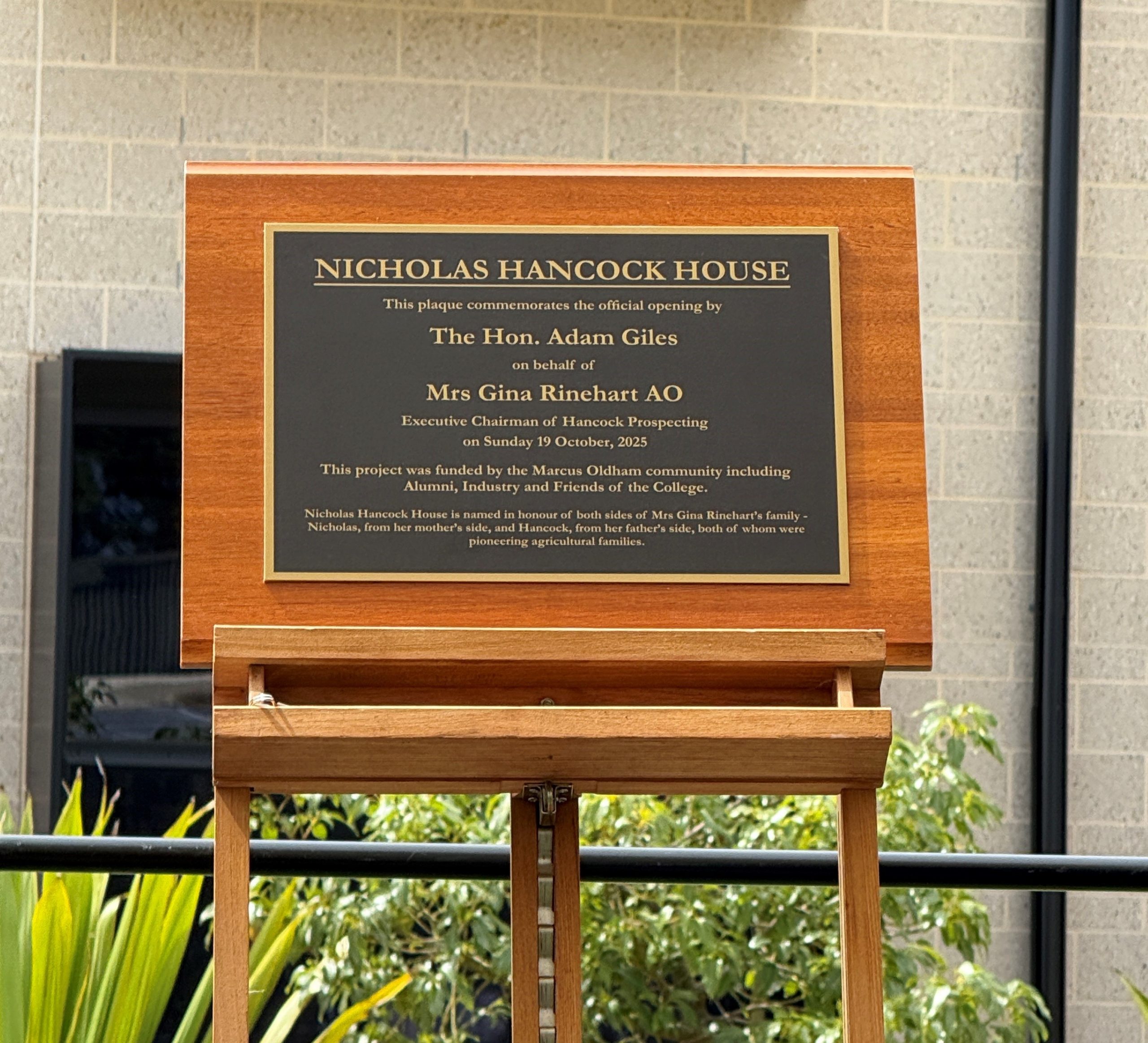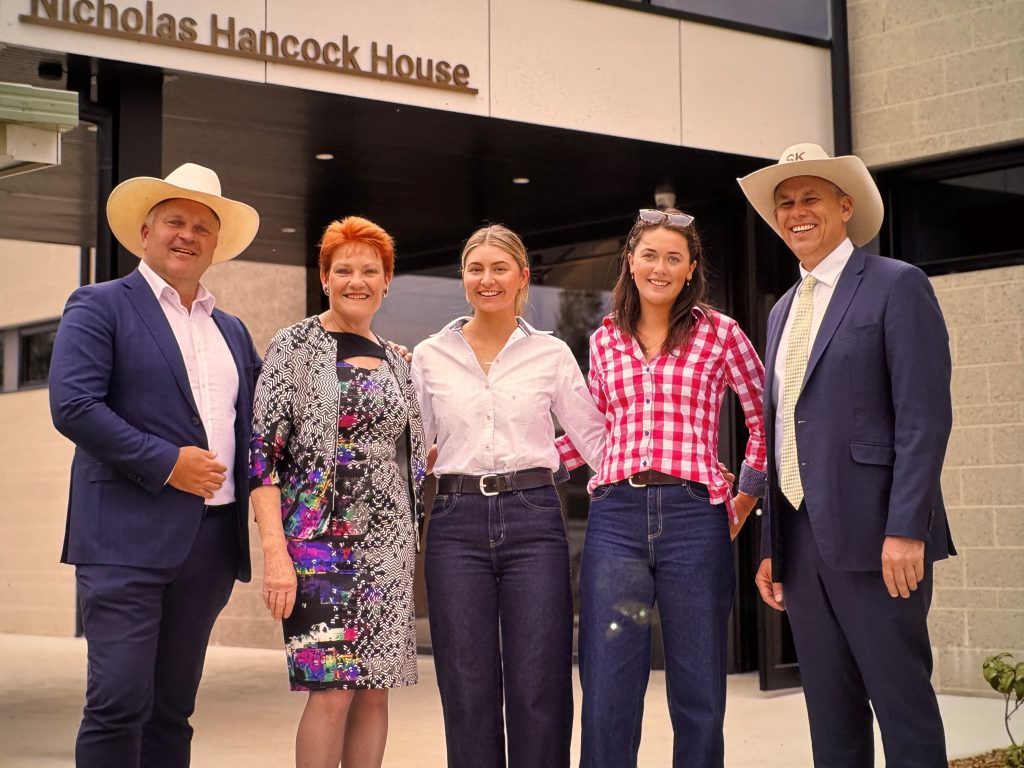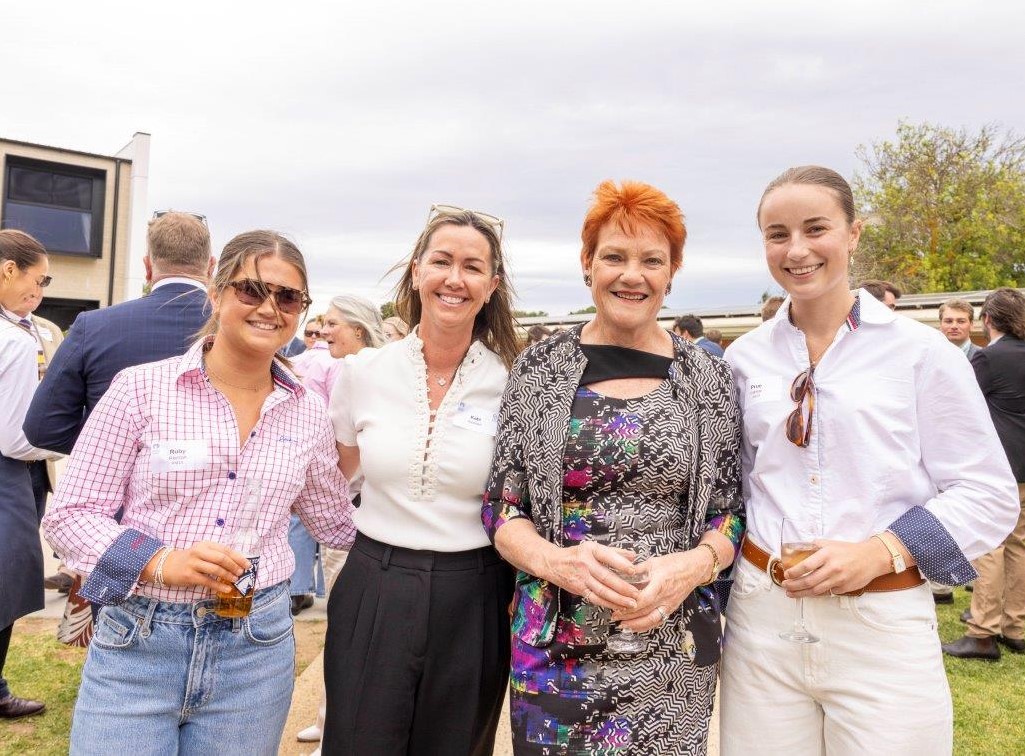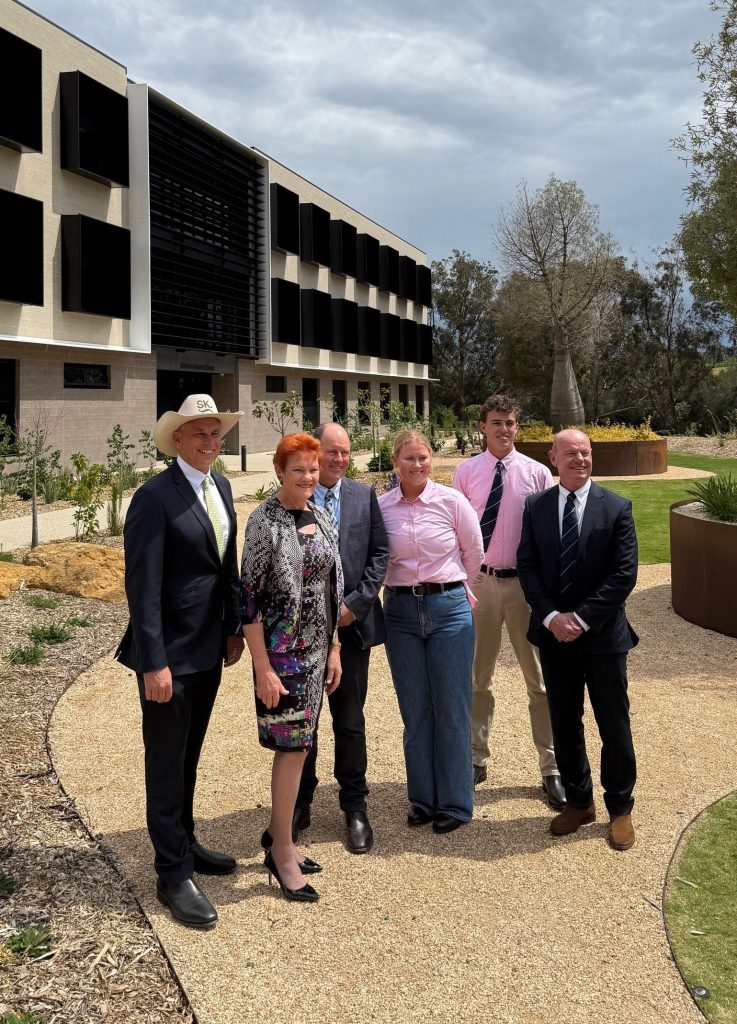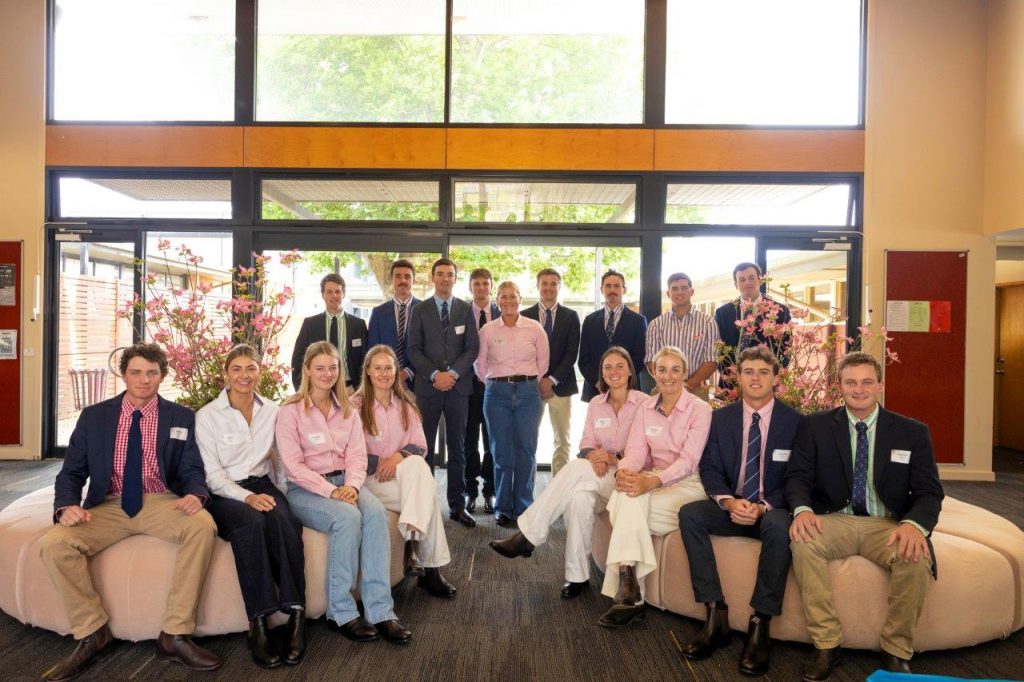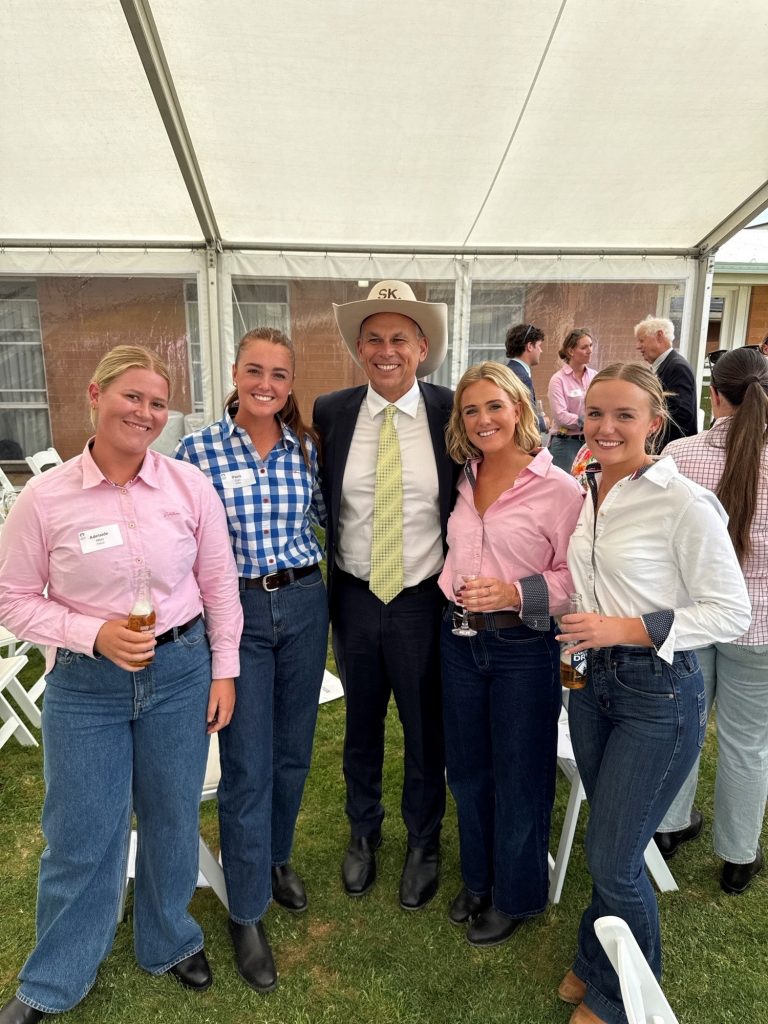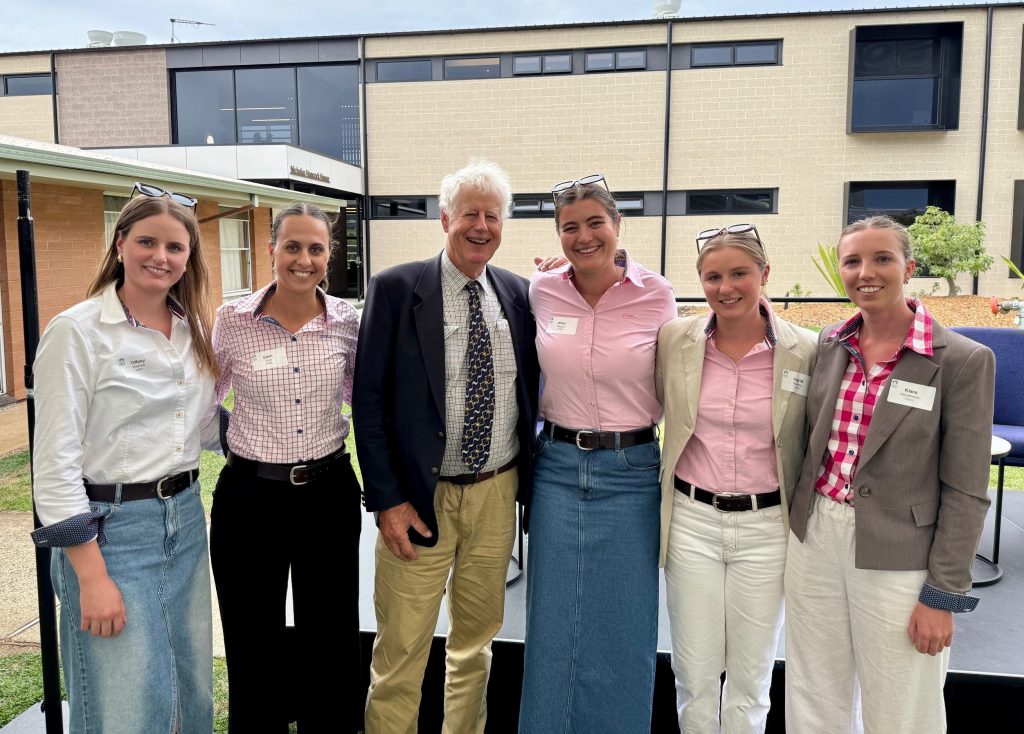Address by Mrs Gina Rinehart AO
Delivered by Adam Giles, CEO of Hancock Agriculture
Marcus Oldham College – 19 October 2025
Good afternoon, students, ladies and gentlemen. My name is Adam Giles, and I am the CEO of Hancock Agriculture.
Our Chair, Mrs Rinehart, couldn’t make it today, but she has asked me to speak on her behalf, and she wishes everyone all the best.
I’m proud to represent her today, and proud to represent brands like 2GR Wagyu – which has recently seen global success winning five awards at the Global Steak Challenge, also known as the “Olympics of Beef,” along with the iconic Rossi Boots, Driza-Bone, and the historic Kidman beef and clothing company.
Today is another example of Mrs Rinehart’s deep commitment to regional Australia, and I want to mark the occasion by saying a few words about why the Bush is so central to our company.
It starts with Mrs Rinehart’s family – the Hancocks, on her father’s side – pioneers who have been associated with the pastoral industry in the northwest, dating back to the 1860s, when her ancestors took a hazardous journey in the 167-ton Sea Ripple, about one thousand miles north, becoming the first pastoralists in the Pilbara region.
The Hancocks also started the first port in the northwest, Cossack, and the first town, Roebourne, where gorgeous old thick stone buildings remain there to this day.
On Mrs Rinehart’s mother’s side, the Nicholases first came to Victoria from Devon in England, before moving west.
Her grandfather, James Nicholas of Cobb & Co, both separately and in association with his long-term friend and another remarkable pioneering Australian, Sir Sydney Kidman, had a long tradition of pastoral interests.
James Nicholas built thousands of miles of roads for Cobb & Co coaches, including later for his own coaches in Western Australia, so that passengers, water, mail, home goods and possessions, equipment, parts, and more could reach the outback, to make living and working there possible.
Mrs Rinehart followed in that country life where her first and formative years started at Mulga Downs, a station that once ran sheep and now runs cattle across several hundred thousand hectares.
It provided a wonderful environment for a daughter of the Bush to grow up.
Some of her most formative years were spent on Mulga Downs and then Hammersley Station, a large cattle station. The lessons in resilience, common sense, and ingenuity have held her in good stead to become one of our most successful ever Australians.
In the early 1990s, she took over the chairmanship of Hancock Prospecting – at the time close to bankruptcy, future uncertain, with very few assets, most of which were under heavy mortgage or legal threat.
But Mrs Rinehart had the vision to save her family company and build her own mine – to build initially with Rio, Hope Downs, and then the mega Roy Hill, which this year reached the milestone of shipping 500 million tonnes of iron ore to global markets.
Through truly hard work and steely determination, not accepting ‘no’ for an answer, she trickled money into exploration, studies, overcoming government tape, arranging equity and financing, and eventually turned the company around, after many said there’s no way she could develop a mine at Roy – especially after BHP had dropped the tenements, believing after holding them for years they were of very little value.
She went up against more than 4,000 different regulatory and licensing requirements and hurdles to build one mine.
She has grown Hancock to become Australia’s largest ever private company, employing thousands and paying billions in royalties and taxes, including payroll tax, stamp duty, and licence fees which were supposed to stop when the GST came in.
Early in December, Roy will celebrate 10 years since first ore was shipped out of Hedland to POSCO in South Korea.
Since then, we have diversified. In addition to our iron ore business, we are now operating one of Australia’s best cattle companies, exporting beef to more than 26 countries.
Through Hancock Energy, we supply 10 percent of Australia’s east coast gas market in a partnership with Senex, and we are developing more gas there and on the west coast.
We also invest in a range of commodities including, but not limited to, copper, gold, and rare earths – not just in Australia but in South America, North America, and most recently the Middle East.
As I alluded to earlier, we own iconic brands like Driza-Bone and Rossi, and the Kidman clothing company – with the newly launched Kidman hats, of which many of you are wearing today, and you can purchase at kidman.com.
As a farmer from regional Victoria, I am immensely proud to work for a company which has such a strong commitment to the Bush, and that Mrs Rinehart finds herself in a position to be able to help the next generation coming through.
It personally brings both Mrs Rinehart and me great joy visiting the stations we run and meeting young people we employ, passionate about farming, with many having taken a punt by travelling across the country to work on one of our stations.
All of this is because our Chair has never forgotten where she’s come from. Growing up on Mulga, then Hammersley, she has a deep connection to the pastoral industry and farming and wants to see the sector thrive into the future.
It is why we run the National Agriculture and National Mining Days in November each year.
It is why we proudly partner with the Herald Weekly Times and other News Corp papers on the annual Bush Summit – to give Aussies in regional Australia a chance to tell those in positions of power what needs to be done to give those in the Bush a fair go.
Despite Victoria being the worst state to do business in – to the point we aren’t encouraged to invest here – we are in strong alignment with the values and the independent and practical nature of Marcus Oldham College.
And that’s why Mrs Rinehart has donated to Marcus Oldham to make possible the Nicholas-Hancock House: as an investment in our nation’s future, to remain an agricultural superpower that can feed us and our neighbours to the north.
As proud as we are of Australia, the sad reality is that no matter which sector you are in, every year it is getting harder to do business here.
Now, if you’ll indulge me, I’d like to invite two friends of Mrs Rinehart’s to the stage – Queensland Senator Pauline Hanson and Tony Seabrook, CEO of the WA Pastoralists and Graziers – to have a discussion about some of the issues farmers are grappling with.
